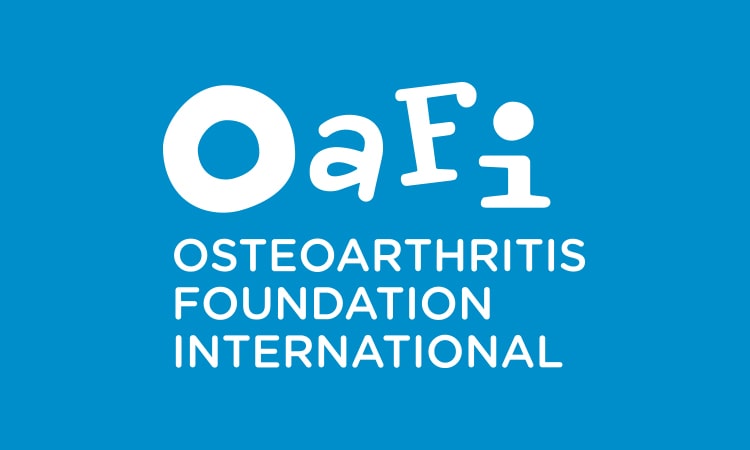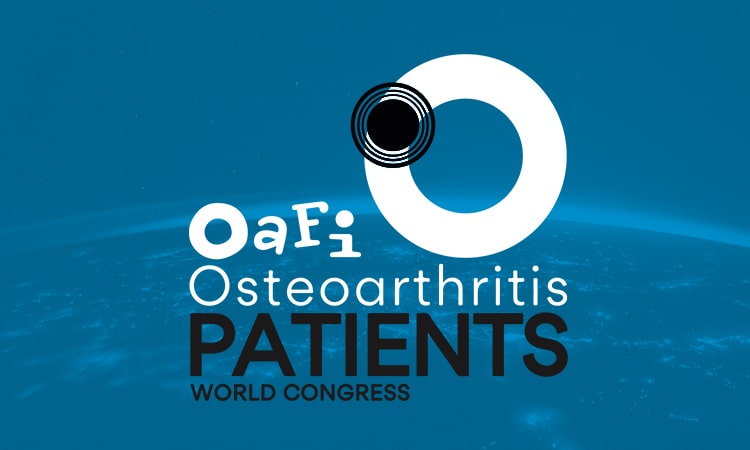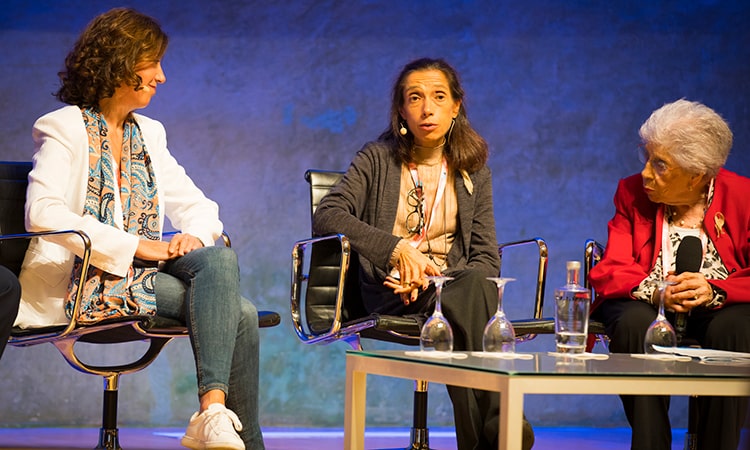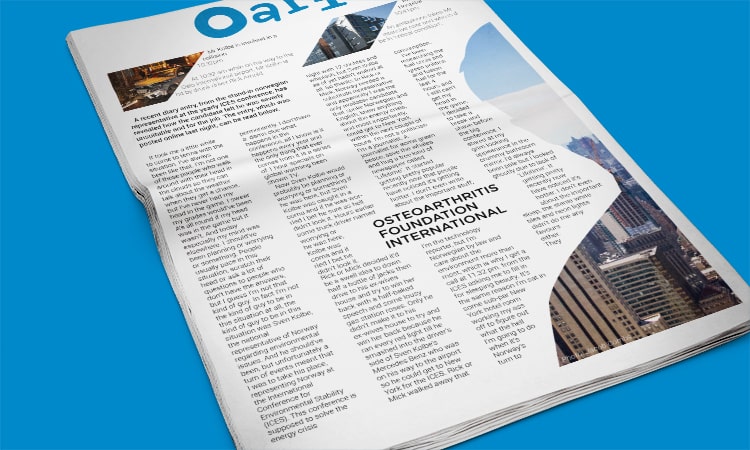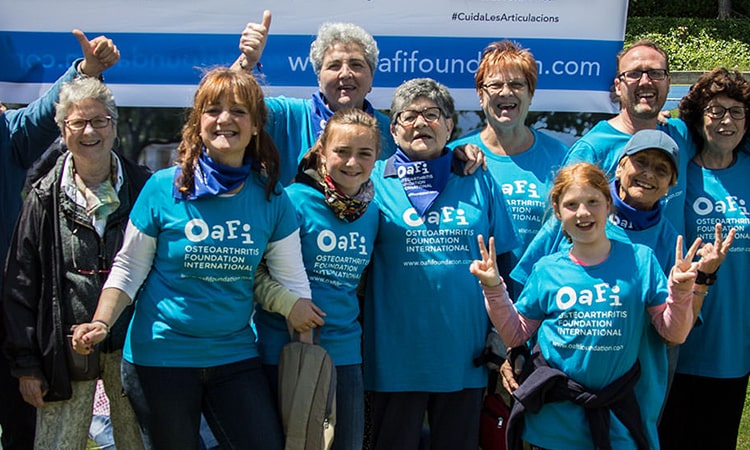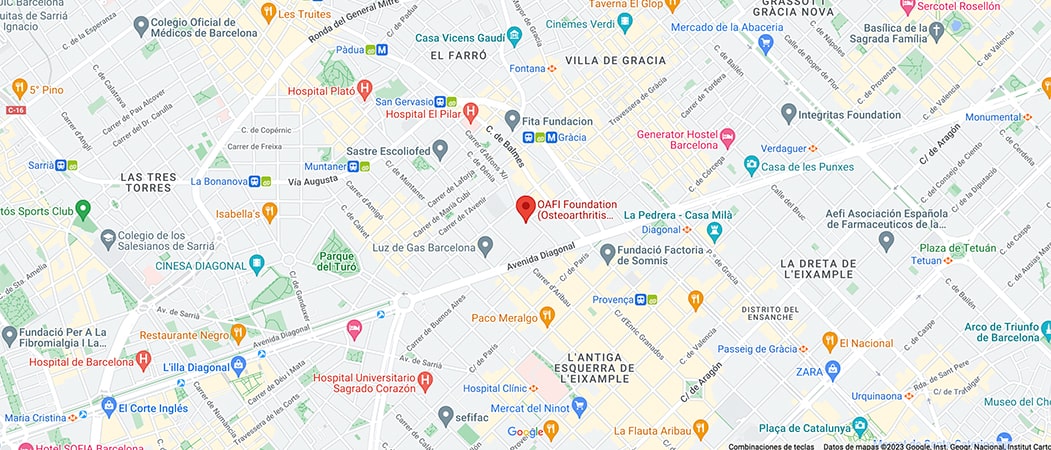- Foundation
- Actions
- Osteoarthritis
- Actuality
- OAFI Radio/TV
- Get Involved
- Contact
-
-
-
OAFI
Osteoarthritis International FoundationC/ Tuset, 19 · 3º 2ª
08006 Barcelona
(+34) 931 594 015
info@oafifoundation.comSchedule:
Monday-Thursday 9AM-6PM
Friday 8AM-3PM
-
-
-

-

The Liubljana statement calls for political commitment to reduce health inequalities

The OAFI Foundation, together with more than 30 European institutions, signed the Ljubljana Statement on political commitment to reduce health inequalities.
The document set up by the Public Health Association of the European Union and the National Institute of Public Health of Slovenia, and presented in Ljubljana at the European Public Health Conference, reiterates the commitment of its signatories to the principle of the Alma Ata Declaration (1978), the first international declaration underlining the importance of primary health care and expressing the need for urgent action by all governments, all health and development workers, and the world community to protect and promote the health of all people. It also reaffirmed the commitment to the Ottawa Charter (1986), the Tallinn Charter (2008); and the Vienna Declaration (2016).
The Ljubljana statement highlights the need for all actors involved in public health policy in Europe and beyond, to commit to:
– Leaving no one behind: decreasing health inequalities within and between countries, ensuring universal access to healthcare and strengthening health systems. This is only possible if health care is accessible to all and health systems are strong and resilient.
– Giving knowledge a voice: ensuring that health data is both scientifically sound and widely available. Modern communication technologies offer great potential for public health to renew and improve its outreach to the public and to different population groups – specially those who have somehow been left behind and excluded from existing prevention and health promotion programmes.
– Translating evidence to politicians: taking into account the political dimension of the work of the public health community. Evidence alone will not achieve behavior change. What is needed is political commitment to bring about change.
– Building capacity: investing to remove barriers to health literacy and promoting and facilitating health literacy for each and every individual. It is crucial to take on an active role by introducing modern public health communication tools and including all the determinants that affect public health.
– Including Health in all policies: strengthening intersectoral collaboration. All sectors involved in or affecting health must work together. All levels of decision-making must be included: civil, local, national and international authorities. Only if we have the political and communication skills, can we contribute to better living conditions.
At OAFI we believe that political commitment is key to change and improve health management and improve health for all. Our aim is to improve the health and well-being of osteoarthritis patients and to raise awareness on osteoarthritis, a non-communicable disease that is often forgotten in the big debate.
Osteoarthritis mainly affects the elderly and women (worldwide estimates indicate that 9.6% of men and 18% of women over 60 have symptomatic OA1) (but not only these two groups), two vulnerable groups within our societies that are greatly affected by this chronic disease. The support of the society and the environments in which a patient lives can deeply influence the way they cope with the disease and the healing process. Recent studies demonstrate that the socioeconomic and educational level of osteoarthritis patients has an impact on their health and healing process.
For all the above mentioned reasons, OAFI signed the Ljubljana statement calling for a political engagement to reduce health inequalities and to continuously carry out initiatives, programs and research in which the osteoarthritis patient is at the center, regardless of age, economic and social status.
More info: https://eupha.org/advocacy-by-eupha
- Wolf AD, Pfleger B. Burden of Major Musculoskeletal Conditions. Policy and Practice. Special Theme-Bone and Joint Decade 2000-2010. Bulletin of the World Health Organization 2003, 81 (9): 646-656.
